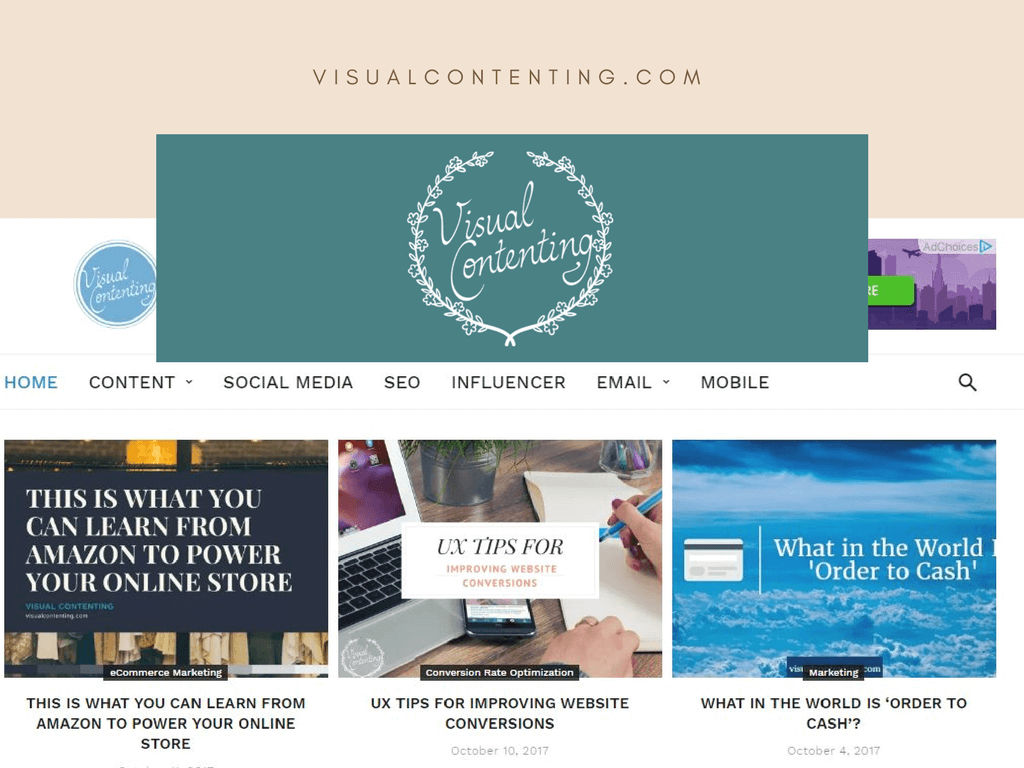Podcasting has become a massive industry. Given that reality, you might understandably be interested in launching a podcast that achieves business growth.
Reaching that goal is not straightforward, but there are effective ways you can make your podcast more likely to get noticed by listeners who end up loving it.
Estimates suggest there are now more than 1,750,000 podcasts, with the overall content totaling over 43 million episodes as of January 2021. Those data points illustrate why it’s not sufficient to launch a podcast and assume people will listen.
Here are several tips for making podcasting a lucrative venture for your company.
1. Understand When People Are Most Likely to Listen
Even the most loyal podcast listeners won’t necessarily listen to new podcast episodes on the day of publishing. The convenient thing about this type of media is that people can consume it in ways that suit their schedules. Although podcast recordings typically occur live, listeners can enjoy the content anytime.
TechCrunch has a venture capitalist-themed podcast called “Equity” that helps people get to know the details behind the relevant headlines they see. Data released in early 2021 showed that “Equity” closed 2020 with its best quarter ever, shortly before the podcast’s fourth anniversary.
The podcast’s team coupled that news with a new midweek show announcement. Those episodes cover a themed topic. Moreover, the podcast’s main episode, which the company most recently released on a Thursday afternoon schedule, now appears in Friday morning podcast feeds.
That was reportedly when most people downloaded the Thursday afternoon content anyway, so listeners won’t experience much of a disruption.
Since there are so many podcasts available to grab the public’s attention, it’s crucial to release yours to match when listeners are most likely to enjoy it. You won’t have that data immediately, but consider conducting polls to ask potential listeners when they listen to podcasts or typically have the most time available to do that.
Recommended: Webinars Vs. Podcast: How to Effectively Choose Between the Two
2. Feature Interviews with Industry Experts
Business growth typically happens more readily when listeners trust a company’s expertise. Determine how you could use a podcast as a platform that convinces people they can rely on your business as a worthwhile resource. For example, you might feature interviews with thought leaders in your industry.
Michael Sacca launched two business podcasts that collectively make him and his co-host more than $10,000 in side income every month. He mentioned interviews as instrumental to growth in his case for several reasons.
First, they allow you to deliver value to an audience without being an expert on a topic. And when you find those with the knowledge and let them speak, people will get the impression that you have useful industry connections, even if not extensive know-how for a particular topic.
Another advantage is that podcast guests tend to bring their audiences to a show by appearing on it. If you strategically try to bring on interviewees that closely align with your industry and content, that approach could expand your audience and help your business grow through better visibility.
3. Make a Content Plan
Most people appreciate familiarity when they listen to podcasts. Your show might bring them new topics or guests every week, but it’s a good idea to evaluate whether your podcast would benefit from a themed approach.
For example, NeoSystems’ NeoCast podcast highlights a different theme every season. The fifth one featured tips and techniques for developing your cyber workforce. The sixth season is a partnership with TIP Technologies covering topics relevant to both those companies’ client bases.
Regardless of whether you go with themed content, it’ll help make other concrete plans for the show and episodes. For example, how often will you release new material? Will each episode have an average length? Does your show have a primary host or rely on several people to give their perspectives during each installment?
You may not initially see how a content plan connects to business growth. However, the podcast reflects your business. If people realize it offers consistently great content, they’ll more likely have favorable opinions of your company, too.
Coming up with a plan and sticking to it also shows you care enough about the podcast to give it the necessary attention.
Recommended: Errors That Are Killing Your Content Marketing Plan
4. Promote Your Podcast Effectively
A podcast can’t facilitate business growth if people don’t know about it. Numerous options exist for getting the word out about it, and it’s best to start with any existing channels.
For example, The Economist recently launched a podcast about global progress associated with COVID-19 vaccinations. People learned about it via an in-depth article on The Economist’s website. The content also featured an embedded player so interested readers could start enjoying the podcast without leaving the site.
Consider which platforms your business has that will most likely attract podcast listeners. Perhaps your Instagram profile includes thousands or hundreds of thousands of followers, and you’ve noticed a steady increase in visitor traffic. That social media app could be an excellent promotional tool.
Alternatively, maybe most current and potential customers come through your website. In that case, creating a blog post or news entry on the site to announce the podcast should work well. Using a bulleted list to describe what people can expect from each episode is a great way to draw individuals in and get them interested.
Finally, word-of-mouth marketing will start happening naturally if you produce high-quality content that people love. Take the time to peruse your podcast’s reviews and note the things listeners say they like or dislike. Use those findings to shape your podcasting decisions moving forward.
5. Build an Engaged Community
Ideally, people who hear podcasts don’t feel like mere listeners but rather active participants in those shows and the associated successes. Explore what you could do to cultivate such experiences.
Fans of the news show “The Daily Zeitgeist” enjoy the nickname “Zeitgang.” Hosts and guests often appeal to the masses by saying things like, “Hey, Zeitgang, can anyone help me with...” to get advice on something related to their lives. Listeners then go on Twitter to provide any help they can to the person who asked for it.
Another tradition on “The Daily Zeitgeist” is for hosts to introduce themselves with parodies of popular songs. Zeitgang members come up with most of the introductions and get their Twitter or Reddit handles mentioned at the top of the show if a host chooses one of their contributions.
Those examples offer ideas of practical ways you can help listeners feel like podcast partners instead of podcast listeners. You might also hold audience polls if it’s difficult to decide which season theme or episode topic to choose. Letting people vote is an easy way to increase the chances of them tuning in. They’ll appreciate that you thought highly enough of their opinions to let them shape the show.
6. Help Listeners Notice the Value in the Content
Research from 2019 indicated that 70% of people polled listen to podcasts without doing other activities. That suggests individuals value this type of content enough to give it their full attention. A fussy toddler or barking dog may momentarily pull someone’s attention away, but most podcast listeners set aside time to enjoy episodes.
Think of what you could do to help people feel glad they spent the time to listen to your podcast rather than doing something else. One of the easiest ways to do that is to know what your listeners want and the kind of information they can use.
For example, the “Inside Trader Joe’s” show lives up to its name by giving people a closer look at the specialty grocery store. Recent episodes detailed the winners of the brand’s Customer Choice Awards and suggested which frozen products make delicious dinner options.
Those smart content choices cater to everyday concerns that people have when buying groceries. Knowing what other customers loved can narrow down choices for overwhelmed or time-pressed shoppers, and everyone needs occasional evening meal ideas.
Another way to convey value to customers is to prove you don’t waste their time. Maybe you host a cybersecurity podcast and know that most of the audience prefers informative tidbits to in-depth discussions. You might begin a series that gives people the scoop on a topic in less than five minutes.
Providing supplemental resources for listeners who want to learn more also shows your authority.
Recommended: 6 Content Marketing Trends to Pay Attention to in 2021
Is Podcasting Right for Your Business?
Podcasting is one of the more time-intensive content activities. However, you could find it worthwhile by following the tips here and other best practices. You should not expect to gain a gigantic audience in a week or two.
However, patience, persistence, and listening to feedback can make your podcasting endeavors pay off by showing measurable and ongoing growth.
Devin Partida writes about topics concerning tech and the internet. She is also the Editor-in-Chief of ReHack.com.



